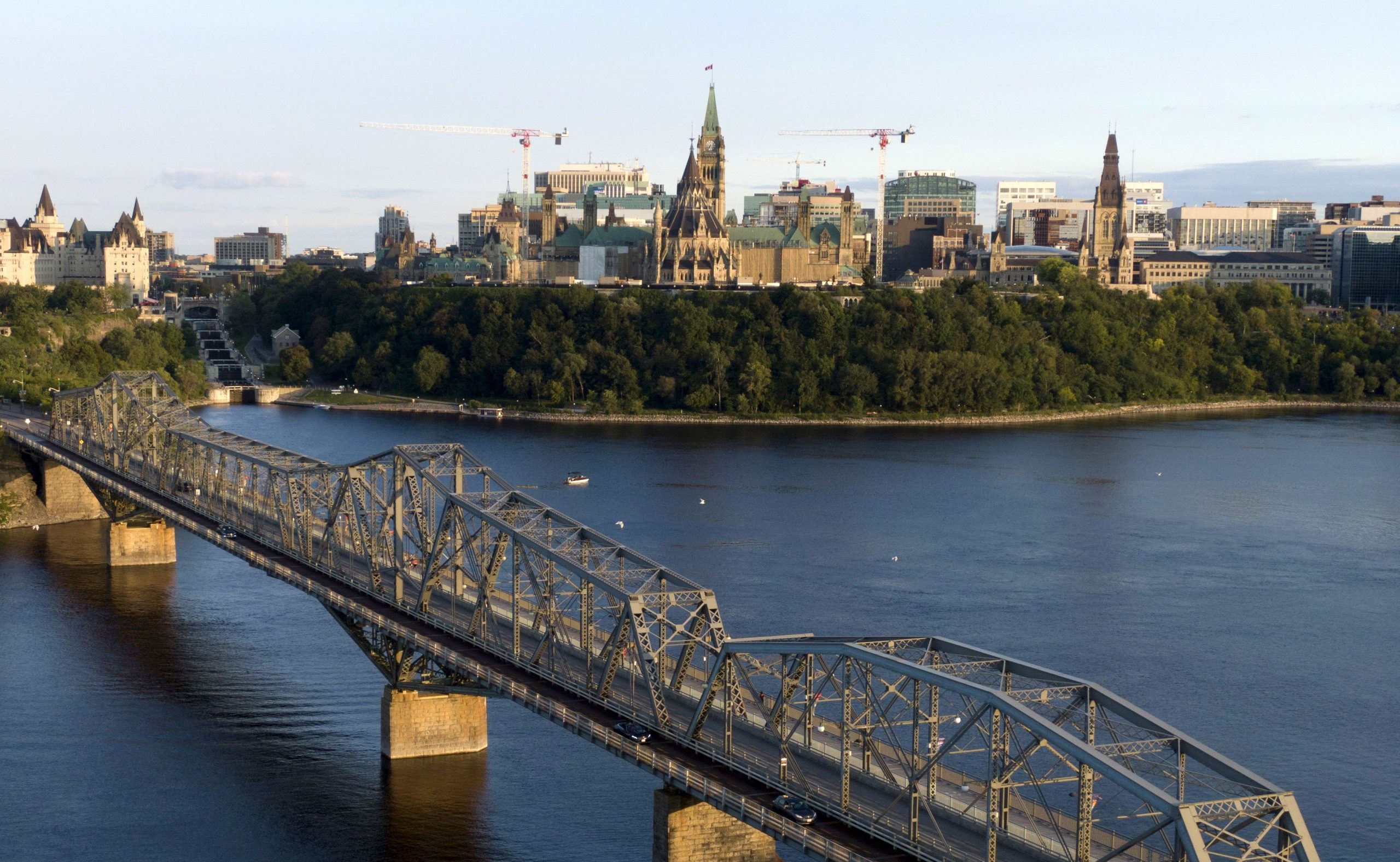Wokeism versus the classical liberal truth-based order is what the discussion on the Online Harms Bill, C-63, is really about. Although some see it as a plot to undermine free speech, it may actually represent the legitimate view of progressives—wokeism—to promote social justice, as they see it. Prime Minister Justin Trudeau and his ministers—the first woke government in the history of Canada—sincerely believe in what they are doing. C-63 is wokeism at work.
I’m not talking about the sections designed to protect children from online harm. Everyone wants that. Whether or not the various digital safety commissars are necessary is questionable, but the politicians can sort that out. I’m referring specifically to the sections allowing anyone to anonymously make a complaint to the Canadian Human Rights Commission (CHRC) that someone has written or said something that is “hateful.” This is defined as causing someone to feel “detested” or “vilified.” You can be made a criminal as a result of someone’s emotional response to what you say or write online. A successful complainant can receive up to $20,000 for that anonymous complaint from the person complained about. And that person, who is now $20,000 poorer, can be ordered to pay a further $50,000 to the government after CHRC bureaucrats—appointed by the government—decide that he has hurt the feelings of the anonymous complainant.
We don’t have to imagine how this will work, because we have already seen it in action with Section 13, the previous incarnation of C-63. In one famous case, Ezra Levant, now of Rebel News, was the person complained about. He had dared to republish the infamous Danish cartoons of Mohammed. Someone complained, and Levant basically had years of his life, and most of his money, consumed with trying to defend himself.
The other famous Section 13 case related to the Islamist issue involved author and media personality Mark Steyn. His case was just as gruelling, time consuming, and expensive. Steyn eventually won, but at great cost in time and money.
Largely as a result of these cases, Section 13 was repealed by the Harper government. What had happened is that a commission with a particular view about Islamic issues had relentlessly prosecuted two men who legitimately held different views about the subject.
And that is exactly what we can expect with this resurrected version of Section 13.
It could be on Islamic issues where people have different views. Or it could be on a thousand other issues where people have different views.
The trans issue is one. The prime minister famously tweeted “Trans women are women.” That is a view held by many people. It is one of the fundamental tenets of progressivism—wokeism. However, many do not accept that view. How many? According to Professor Eric Kaufman, one-third of Canadians accept woke views, while two-thirds reject wokeism. This same two-thirds to one-third ratio also applies in Britain and United States. The one-third fervently believe that they must remake the world according to the way they know it must be, and that the two-thirds who don’t see it yet must be brought along.
So, with this proposed legislation, we see the problem immediately. Complaints will be made to the CMHR about a trans issue, for example, against
someone within the two-thirds majority of the population who do not accept that “trans women are women” and that complaint will be adjudicated by mainly Liberal appointees—appointed in large part exactly because of their progressive views—who believe that “trans women are women.” The people complained about can expect to be treated the same way Levant and Steyn were treated: namely, being forced through lengthy and expensive hearings, simply for holding the same views that two-thirds of Canadians hold.
This is an absurd result. And the trans example is just one of many that can be expected to generate complainants. What about the belief that all indigenous complaints must be believed? This is the woke view, namely that the truthfulness of stories told within indigenous communities cannot be questioned in the usual way. The most dramatic example of this odd belief is the claim that 215 indigenous children were secretly buried at the former Kamloops Residential School, in some cases with the forced help of children as young as six. We were asked to believe this highly improbable claim simply because of stories that circulated within indigenous communities.
The Trudeau Liberals immediately accepted this baseless claim. A cabinet minister, Marc Miller, even publicly called a distinguished professor of history, Jacques Rouillard a “ghoul” for simply suggesting that it is in the interest of all Canadians that excavations should be undertaken at Kamloops to determine the truth. If a cabinet minister says such things, it can safely assumed that many other people are quite willing to lodge anonymous complaints against truth seekers, like this professor.
The prime minister actually gave an explanation of how he views free speech in a candid discussion with a journalist during the truckers’ convoy protest. He said that some Canadians—those opposing vaccine mandates and other forms of excessive government control—had “unacceptable views.” They must be stopped. Only “acceptable views”—his—would be allowed.
The problem with this simplistic view is that there are a myriad of subjects upon which people hold different views. Trudeau sincerely believed that these protesters were wrong, while the protestors just as sincerely believed that he was wrong. Imposing the Emergencies Act over a difference of opinion was an extreme move. We now know that what he did was unconstitutional. Bill C-63 is very similar to the use of the Emergencies Act. Both only make sense to the woke.
The classical liberal truth-based order, so painstakingly constructed, was built on free and raucous discussion. And that is the only way it can be maintained. That free discussion of ideas—no matter how offensive, “hateful,” or irksome they might be to people with different views—is vital to our democratic governance.
The woke view, on the other hand, insists that there are certain fixed ideas, such as systemic racism, trans women are women, etc., that must be accepted by everyone, at any cost.
That’s the fight that is underway now with the Online Harms Bill. One side—the one-third—say that they know the way, and everyone must follow. The other side—the two-thirds—say that no one “knows” the way, but only by free discussion can we find it. That free discussion of ideas is messy. People will have their feelings hurt by discussions that will not always be polite. But that’s exactly what has built our advanced civilization.
Wokeism versus classical liberal truth-based order. That’s what C-63 is about.
Children must be protected. Genocide is bad. No one argues with those things. But free speech must be protected. The one-third of the population who hold “woke” views are absolutely entitled to hold and express those views. But they cannot be allowed to prevent the two-thirds who view the world differently from expressing theirs.
Canadians are a trusting people, as Kaufman points out in the above article. And while the roughly two-thirds of the population that does not accept wokeism is identical to the two-thirds in Britain and United States, Canada is different from them in that our Conservative Party has been very reluctant to push back against wokeism, as the Conservatives do in Britain and the Republicans so vigorously do in America. The odd result is that the two-thirds non-woke Canadians tend to trust the one-third woke who have captured the media and our other major institutions. We saw that at work in the government control wielded during the COVID years. Bill C-63 can only make that tendency towards submission worse, by allowing only woke views—acceptable views—to be discussed publicly.
There will be some brave free-speech martyrs, like Levant and Steyn, who will be prepared to soldier on regardless of what legislation the current ideological government passes. But most people who would be inclined to push back against woke mantras—such as “a trans woman is a woman” or “all indigenous claims must be believed”—won’t, even if they know that the claims aren’t true. Canada will become the worse for it.
Wokeism is authoritarian, and will not tolerate free speech.
As drafted, Bill C-63 definitely contravenes Article 2 of the United Nations Declaration of Human Rights, which states that everyone has the right to their “political or other opinion.”
C-63, as drafted, is bad law. It must not be passed.
Brian Giesbrecht, retired judge, is a Senior Fellow at the Frontier Centre for Public Policy



